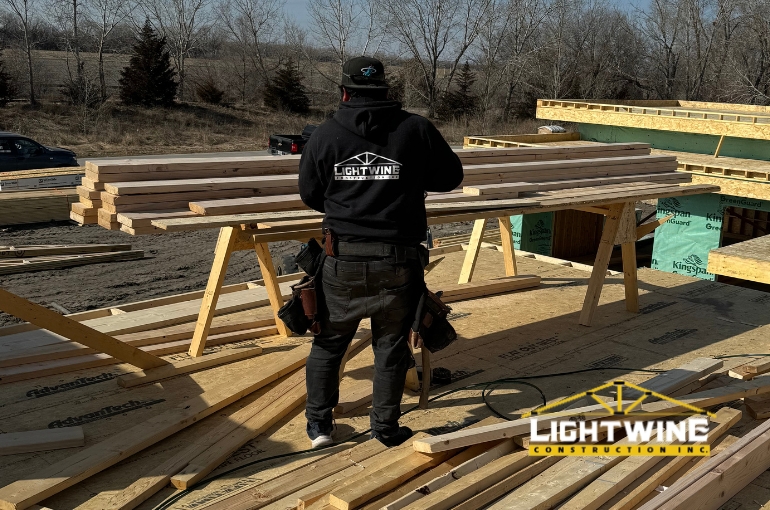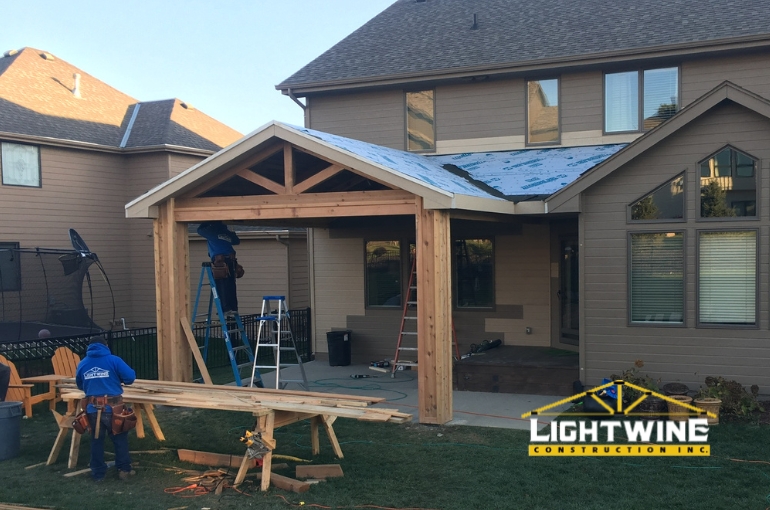In this blog, we’ll explore why proper site preparation with contractors in Omaha, NE is crucial to a successful and safe construction process.
1. Ensures Structural Stability
One of the most important reasons for thorough site preparation is ensuring the structural stability of the building. Any structure—whether it's a home, a commercial building, or even a small outdoor shed—relies on a solid and stable base. This starts with preparing the land correctly.
- Clearing and Grading: Clearing the land involves removing any obstacles, such as trees, rocks, or debris that may interfere with the construction process. Once cleared, the land must be graded to ensure a level surface. Uneven terrain can lead to foundational problems down the line, such as settling or cracking, which can compromise the integrity of the building.
- Soil Testing: Before construction can begin, the soil must be tested to ensure it can support the weight of the structure. Different types of soil have different load-bearing capacities, and soil that is too loose, clayey, or prone to erosion may need to be compacted or stabilized to prevent future issues. Failing to account for soil type can lead to problems such as foundation shifting, sinking, or cracking.
- Drainage: Proper drainage is key to preventing water accumulation around the building’s foundation. As part of site preparation, the land is often graded to promote water runoff, ensuring that water doesn’t pool around the base of the structure. Poor drainage can lead to flooding, water damage, and foundation erosion over time.
2. Prevents Delays and Unforeseen Issues
Skipping or rushing through site preparation can lead to unforeseen issues that delay the construction process. Problems like uneven ground, hidden obstacles, or poor soil quality may not be obvious at first but can cause significant delays once construction is underway.
- Excavation: Excavation is often required to prepare the land for laying foundations or building basements. This involves digging out areas where footings, foundations, or utilities will be installed. Excavation must be precise and carefully planned to avoid issues like cave-ins, improper depth, or unanticipated obstacles like underground utilities or rocks.
- Utility Checks: Site preparation also includes checking for any existing underground utilities, such as gas lines, water pipes, or electrical cables. Knowing where these are located is critical for ensuring the safety of workers and preventing costly damage during excavation or construction.
By thoroughly preparing the site, construction teams can avoid these costly and time-consuming issues, ensuring the project stays on schedule.
3. Improves Safety on the Job Site
A properly prepared construction site is a safer site. Construction is already a high-risk industry, with workers exposed to potential hazards like heavy machinery, falls, and structural collapses. Proper site preparation minimizes these risks by ensuring that the land is stable, debris-free, and properly leveled before construction begins.
- Secure Foundations: If a foundation is built on unstable or poorly prepared land, it can lead to structural failures that put both workers and future occupants at risk. Proper grading, excavation, and soil stabilization reduce the chance of accidents related to ground instability.
- Hazard-Free Work Zones: Clearing the land of trees, rocks, and debris also helps create a safer work environment. By removing these hazards, workers can move freely and safely around the job site, reducing the risk of trips, falls, or equipment accidents.
4. Reduces Long-Term Maintenance Costs
A construction project that starts with proper site preparation is more likely to stand the test of time with fewer long-term maintenance issues. Homes or buildings that are constructed on poorly prepared sites often face ongoing problems such as foundation settling, drainage issues, or structural cracking. These problems can be expensive to fix and could have been avoided with proper site preparation at the outset.
Site preparation is a fundamental step in ensuring the success and safety of any construction project. From clearing and leveling to excavation and soil testing, proper site preparation provides a stable foundation for the structure, helps avoid costly delays, improves job site safety, and reduces long-term maintenance costs. At Lightwine Construction, we take site preparation seriously, ensuring that every project is built on solid ground from the very beginning.
Site preparation with contractors in Omaha, NE
If you’re planning a construction project, contact Lightwine Construction contractors in Omaha, NE to ensure that your site is properly prepared, setting the stage for a safe and successful build.








